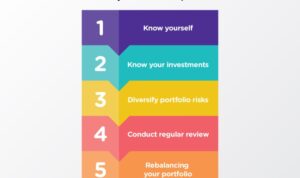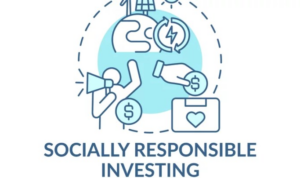Jump into the world of financial podcasts with top picks, formats, educational content, and production quality. Get ready to level up your financial knowledge in style!
From host details to engaging formats, this overview will guide you through the exciting realm of financial podcasts.
Top Financial Podcasts
Looking for some top financial podcasts to tune into? Check out these popular shows hosted by industry experts and featuring special guests:
1. The Dave Ramsey Show
- Host: Dave Ramsey
- Special Guests: Financial experts, success stories
- Unique Selling Points: Practical advice on budgeting, getting out of debt, and building wealth
- Target Audience: Individuals looking to improve their financial situation and achieve financial freedom
2. InvestED Podcast
- Hosts: Phil Town and Danielle Town
- Special Guests: Investors, entrepreneurs
- Unique Selling Points: Value investing strategies, stock market insights, and personal finance tips
- Target Audience: Beginner and intermediate investors interested in long-term wealth accumulation
3. The Clark Howard Podcast
- Host: Clark Howard
- Special Guests: Consumer advocates, financial experts
- Unique Selling Points: Consumer advice, money-saving tips, and economic insights
- Target Audience: Savvy consumers looking to make informed financial decisions
Podcast Formats
When it comes to financial podcasts, there are different formats that creators can use to deliver content to their audience. Each format has its own advantages and disadvantages, catering to different preferences and engagement levels among listeners.
Narrative-Driven Podcasts
Narrative-driven podcasts in the financial realm focus on storytelling and presenting information in a more structured and engaging way. These podcasts often follow a specific theme or topic throughout the episode, weaving in personal anecdotes, case studies, and expert insights to create a compelling narrative for the audience.
- Narrative-driven podcasts can help simplify complex financial topics and make them more relatable to listeners.
- They tend to be more entertaining and can hold the audience’s attention for longer periods.
Interview-Based Podcasts
Interview-based financial podcasts, on the other hand, feature discussions and conversations with industry experts, professionals, and thought leaders. These podcasts provide a platform for guests to share their expertise, insights, and experiences with the audience, offering a more conversational and interactive format.
- Interview-based podcasts offer a diverse range of perspectives and opinions on financial matters.
- They can provide valuable insights and practical advice from experts in the field.
Most Engaging Format
In terms of engagement, both narrative-driven and interview-based formats have their strengths. Narrative-driven podcasts are ideal for listeners who enjoy storytelling and a more structured approach to learning about financial topics. On the other hand, interview-based podcasts cater to those who prefer listening to conversations and gaining insights directly from industry experts.
Overall, the most engaging format for financial content depends on the preferences of the audience and the goals of the podcast creators. By experimenting with different formats and finding the right balance between storytelling and expert insights, financial podcasts can effectively engage and educate their listeners.
Educational Content
Financial podcasts offer a wealth of educational value for listeners looking to improve their financial literacy. These podcasts cover a wide range of topics related to personal finance, investing, budgeting, and more. They often feature interviews with financial experts who share valuable tips and strategies to help listeners make informed decisions about their money.
Topics Covered in Educational Episodes
- Basic principles of personal finance, such as budgeting, saving, and managing debt
- Investing strategies for beginners and advanced investors
- Risk management and diversification in investment portfolios
- Retirement planning and setting financial goals
- Understanding financial markets and economic trends
Tips and Strategies from Financial Experts
-
“Start by creating a budget and tracking your expenses to gain control over your finances.” – Financial Advisor
-
“Diversification is key to reducing risk in your investment portfolio. Don’t put all your eggs in one basket.” – Investment Expert
-
“Consider automating your savings and investments to make it easier to stick to your financial goals.” – Wealth Manager
Contribution to Financial Literacy
Financial podcasts play a crucial role in improving financial literacy by breaking down complex financial concepts into easily digestible information. Listeners can learn at their own pace and apply the knowledge gained to make better financial decisions in their lives. By providing access to expert advice and insights, these podcasts empower individuals to take control of their financial futures.
Production Quality
When it comes to financial podcasts, production quality plays a crucial role in attracting and retaining listeners. High-quality sound, engaging storytelling, and seamless editing can make a significant difference in the overall listening experience.
Importance of Sound Quality
Good sound quality is essential for a podcast to be enjoyable. Listeners are more likely to engage with content that is clear, crisp, and free from distractions. Background noise, echo, or poor audio levels can be major turn-offs for listeners.
Examples of Exceptional Production Values
– “The Dave Ramsey Show”: Known for its professional production quality, clear audio, and engaging content.
– “Planet Money”: This podcast from NPR consistently delivers high production standards with compelling storytelling and sound design.
– “The Indicator from Planet Money”: Another NPR production, this podcast stands out for its high-quality sound mixing, engaging hosts, and informative content.
Impact on Listener Engagement
Podcasts with exceptional production quality are more likely to capture and maintain the attention of listeners. Clear audio, seamless editing, and engaging storytelling can enhance the overall listening experience, leading to increased listener retention and a loyal audience base.





